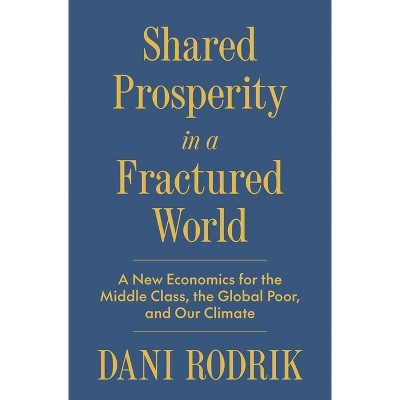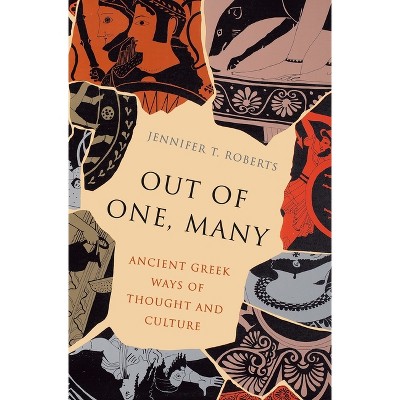Sponsored

Utopophobia - by David Estlund (Paperback)
$29.91Save $2.09 (7% off)
In Stock
Eligible for registries and wish lists
Sponsored
About this item
Highlights
- A leading political theorist's groundbreaking defense of ideal conceptions of justice in political philosophy Throughout the history of political philosophy and politics, there has been continual debate about the roles of idealism versus realism.
- About the Author: David Estlund is the Lombardo Professor of the Humanities in the Philosophy Department at Brown University.
- 400 Pages
- Philosophy, Political
Description
About the Book
"Throughout the history of political philosophy and politics more broadly a debate has raged about the proper place of idealism versus realism in our thinking about political principles and institutions. Within contemporary political philosophy, this debate has taken the form of what is called "ideal theory" versus "non-ideal theory." Non-ideal theorists have tried to shift the focus of political philosophy from theorizing about the nature of concepts like "justice" to questions about which feasible institutional and political changes would make a society, or the world, more just. But what if, the ideal theorist asks, justice is a standard that no society is likely ever to satisfy? Could we somehow even know this is the case before seriously considering what justice requires? And, if social justice were unrealistic, would that mean that understanding justice is without value or importance, and merely idle utopianism? In Utopophobia, David Estlund argues that the best reasons for thinking either that justice must be realistic, or for thinking that there is no point in understanding justice unless it could be realized, are not convincing. No particular theory of justice is offered or presupposed by Estlund in this book, nor is it argued that justice is indeed unrealizable-only that it could be, and that this possibility upsets common ways of proceeding in political thought. The book, thus, represents a critical engagement with important strands in traditional and contemporary political philosophy which suppose that a sound theory of justice, or even the enterprise of political philosophy generally, has the sole or overriding and defining task of contributing practical guidance toward greater social justice. Along the way, Estlund argues against several tempting views; that the "circumstances of justice," as understood by Hume and Rawls, imply that the very idea of social justice is grounded in unfortunate but realistic conditions of individual moral deficiency; that inquiry in political philosophy could have significant value only insofar as it guides to practical political action; and that understanding true justice would necessarily have practical value, at least as an ideal arrangement to be approximated"--Book Synopsis
A leading political theorist's groundbreaking defense of ideal conceptions of justice in political philosophy
Throughout the history of political philosophy and politics, there has been continual debate about the roles of idealism versus realism. For contemporary political philosophy, this debate manifests in notions of ideal theory versus nonideal theory. Nonideal thinkers shift their focus from theorizing about full social justice, asking instead which feasible institutional and political changes would make a society more just. Ideal thinkers, on the other hand, question whether full justice is a standard that any society is likely ever to satisfy. And, if social justice is unrealistic, are attempts to understand it without value or importance, and merely utopian? Utopophobia argues against thinking that justice must be realistic, or that understanding justice is only valuable if it can be realized. David Estlund does not offer a particular theory of justice, nor does he assert that justice is indeed unrealizable--only that it could be, and this possibility upsets common ways of proceeding in political thought. Estlund engages critically with important strands in traditional and contemporary political philosophy that assume a sound theory of justice has the overriding, defining task of contributing practical guidance toward greater social justice. Along the way, he counters several tempting perspectives, including the view that inquiry in political philosophy could have significant value only as a guide to practical political action, and that understanding true justice would necessarily have practical value, at least as an ideal arrangement to be approximated. Demonstrating that unrealistic standards of justice can be both sound and valuable to understand, Utopophobia stands as a trenchant defense of ideal theory in political philosophy.Review Quotes
"Utopophobia is a monumental achievement."---Zofia Stemplowska, Phil Studies
"David Estlund is a leading political philosopher....he further cements himself as a crucial figure in ideal theory. ... This book stakes out clear territory for the value of ideal theory against the challenge brought by nonideal theorists. ...an impressive piece of philosophy."---Ryan Muldoon, Review of Politics
"Masterful . . . fascinating and delightfully heretical."---Nic Southwood, Phil Studies
"The publication of Utopophobia is a major event . . . the book is written in a crystal clear and yet almost poetic style. . . . It provides the most careful and extensive defence of ideal theory to date."---Jacob Barrett, Mind
About the Author
David Estlund is the Lombardo Professor of the Humanities in the Philosophy Department at Brown University. He is the author of Democratic Authority: A Philosophical Framework (Princeton) and the editor of The Oxford Handbook of Political Philosophy.Dimensions (Overall): 6.1 Inches (H) x 9.1 Inches (W) x 1.1 Inches (D)
Weight: 1.3 Pounds
Suggested Age: 22 Years and Up
Number of Pages: 400
Genre: Philosophy
Sub-Genre: Political
Publisher: Princeton University Press
Format: Paperback
Author: David Estlund
Language: English
Street Date: May 31, 2022
TCIN: 84910680
UPC: 9780691235172
Item Number (DPCI): 247-33-5574
Origin: Made in the USA or Imported
If the item details aren’t accurate or complete, we want to know about it.
Shipping details
Estimated ship dimensions: 1.1 inches length x 9.1 inches width x 6.1 inches height
Estimated ship weight: 1.3 pounds
We regret that this item cannot be shipped to PO Boxes.
This item cannot be shipped to the following locations: American Samoa (see also separate entry under AS), Guam (see also separate entry under GU), Northern Mariana Islands, Puerto Rico (see also separate entry under PR), United States Minor Outlying Islands, Virgin Islands, U.S., APO/FPO
Return details
This item can be returned to any Target store or Target.com.
This item must be returned within 90 days of the date it was purchased in store, shipped, delivered by a Shipt shopper, or made ready for pickup.
See the return policy for complete information.
Frequently bought together

$10.38 - $23.82
MSRP $18.00 - $38.00 Lower price on select items
4.6 out of 5 stars with 194 ratings










